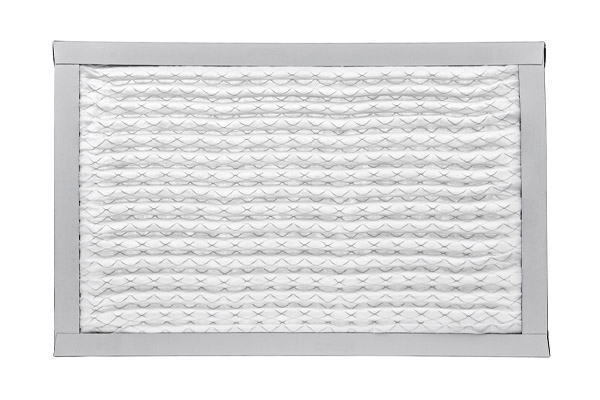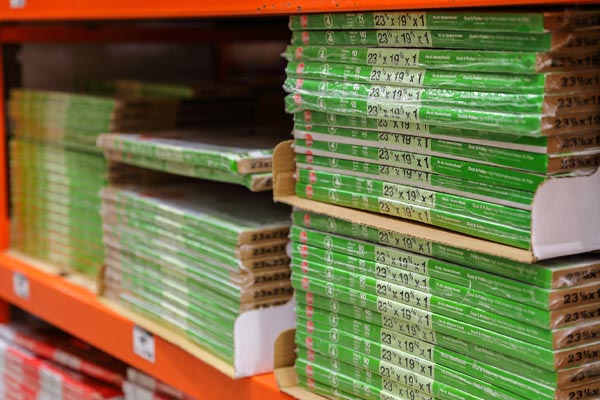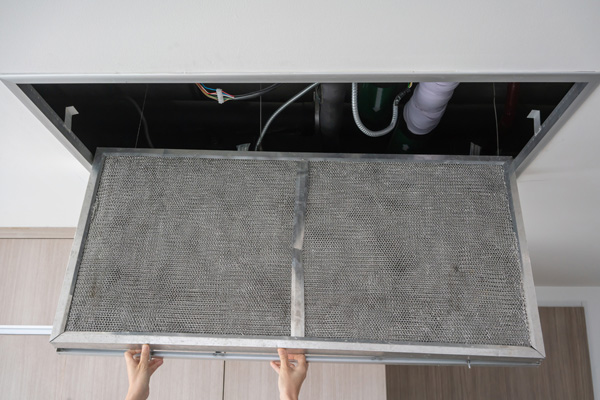Understanding MERV Ratings: Choosing the Right Air Filter for Your HVAC System
 Every household has pollutants that can harm the quality of indoor air. Most of these pollutants can’t be seen by the naked eye. Families that are concerned about their indoor air quality (IAQ) should consider replacing their filters frequently. Although manufacturers provide recommendations, it’s best to check filters monthly to ensure that they’re working effectively. In some cases, households may require more frequent filter replacements than what manufacturers suggest.
Every household has pollutants that can harm the quality of indoor air. Most of these pollutants can’t be seen by the naked eye. Families that are concerned about their indoor air quality (IAQ) should consider replacing their filters frequently. Although manufacturers provide recommendations, it’s best to check filters monthly to ensure that they’re working effectively. In some cases, households may require more frequent filter replacements than what manufacturers suggest.
It’s important to select filters that are compatible with your HVAC system and the specific needs of your household. One of the most critical factors to consider when purchasing filters is the MERV rating. In this article, we will delve into the significance of the MERV rating and why it’s important to select a filter that matches your household’s requirements.
Understanding MERV Rating
Air filter shopping can be overwhelming, given the numerous products claiming to be the best. To make an informed decision, it’s crucial to understand the specifications and meaning behind the numbers. One of the terms you may encounter when shopping for an air filter is “MERV”. This acronym stands for Minimum Efficiency Reporting Value.
The MERV rating is a crucial factor in determining an air filter’s ability to capture harmful particles. Generally, the higher the rating of a filter, the better its filtration capacity.
Related Article: How To Combat Dry Air Symptoms In Winter
How MERV Rating Works

The MERV rating system ranges from 1 to 20, with higher ratings indicating better filtration. However, some environments may require a MERV rating in the middle of the scale. For instance, hospitals, cleanrooms, and nuclear power plants often use air filters rated from MERV 16 to 20. For most households, air filters with a rating between MERV 5 to 13 will suffice. Ratings below MERV 5 will not adequately maintain indoor air quality. Finally, anything above MERV 13 may hinder the performance of residential HVAC systems.
Understanding MERV ratings can help you make an informed decision when purchasing air filters for your home.
How Is MERV Rating Determined?
The MERV rating of filters is determined through rigorous testing that involves multiple particles in three size ranges. The sizes are E1, E2, and E3. These particles are invisible to the naked eye, but can be detected by advanced laboratory equipment. The particles are sprayed through the filters during the test, and the number captured is counted afterward.
The MERV rating is determined based on the worst test score since it’s meant to measure the “minimum efficiency” of the filter. For instance, a filter must capture 95% or more of particles to qualify as a MERV 16 filter. Understanding how MERV ratings are determined can help you make an informed decision when purchasing air filters for your home.
Related Article: 6 Common Household Products That Pollute Your Home’s Air
How MERV Ratings Affect Indoor Air Quality
Indoor air quality can significantly impact the health and comfort of your family. A higher MERV rating filter can help reduce the presence of allergens in the air. As a result, you will have to contend with fewer allergy symptoms such as fatigue, headaches, eye irritation, rashes, sore throat, persistent sneezing, and a runny nose.
Upgrading to a filter with a higher MERV rating can also protect your home from damage caused by dust and bacteria. The units also reduce the frequency of illnesses and prevent contagions. If someone in the household has a weak immune system, then a high-MERV filter can be especially beneficial.
How MERV Ratings Affect Energy Use
Choosing an air filter with a higher MERV rating means that the filter has smaller openings to catch more airborne particles. As the openings get smaller, air struggles to pass through. As a result, your heating and cooling system will need to consume more energy to perform well.
It’s not advisable to use MERV 20 filters in homes that cannot handle this level of filtration. Otherwise, you will have to deal with a significant increase in energy bills. On the same note, your HVAC systems may end up breaking down prematurely.
Residential air filters typically have MERV ratings between 8 and 13. Air filters with these ratings can maintain decent air quality without drastically increasing your energy bills. If you’re not sure which type of HVAC filter is best for your home, consult with an HVAC contractor to ensure that you choose the right filter for your needs.
Impact of HVAC Air Filter on HVAC System

The air filter plays a crucial role in maintaining the health and longevity of a forced-air heating and cooling system. Every system comes with a recommended MERV rating. It’s important to stick to air filters with the recommended ratings to prevent costly problems. Choosing a filter with a low rating might save money upfront. However, it can lead to dust and bacteria buildup in the ducts, causing poor system efficiency and high maintenance costs. On the other hand, filters with high MERV ratings can cause reduced airflow, hasten wear, and shorten the lifespan of the HVAC system.
Considerations for Buying High MERV Filters
While high-MERV filters are generally better at capturing pollutants, they can impede the airflow and negatively impact the performance of the system. Poor airflow can lead to reduced indoor comfort, increased energy consumption, and higher monthly bills. Therefore, you should choose an air filter that is compatible with the HVAC system to avoid any adverse effects.
The air filter is an essential component of any forced-air heating and cooling system. Therefore, it’s important to choose a filter with the recommended MERV rating to prevent problems. While high MERV ratings might sound appealing, they may not always be the best option.
Related Article: Simple Tips For Pet Owners To Improve Their Indoor Air Quality
Determining the Right MERV Rating for Your Home
When selecting an air filter for your HVAC system, consider the MERV rating that is suitable for your specific situation. This will ensure that you get the most out of your filter without causing any damage to your system. Check your owner’s manual to determine the recommended MERV rating of your system. Typically, residential systems work well with air filters rated between MERV 8 and 13.
Conclusion
The MERV rating plays a crucial role in determining the effectiveness of your air filter in removing unwanted pollutants from your indoor air. It’s crucial to choose an air filter the right MERV rating for your unique situation. Such a filter will ensure optimal air quality and energy efficiency.
Read the owner’s manual and keep in mind things such as pets and allergies in your home. These will help you to make an informed decision about which MERV rating to choose for your home.
Related Article: Incredible Indoor Air Quality Myths
Professional HVAC Services by Miller Oil Company

Looking for a trusted heating and cooling services company in Hartford County, Connecticut? Miller Oil Company has got you covered! Our team of expert technicians is certified and ready to provide you with exceptional HVAC replacements, installations, tune-ups, and more. You can trust us to get the job done right, the first time around.
At Miller Oil Company, we understand that affordability is important. That’s why we offer competitive HVAC services. Our maintenance services can help to reduce your home heating and cooling costs, increase energy efficiency, and improve your overall comfort. If you need an HVAC repair or replacement, we can provide recommendations that fit your unique needs and budget. Finally, we stand behind all of our work with a guarantee to ensure your satisfaction.
Ready to schedule an appointment? Give Miller Oil Company a call today! We even offer free, in-home estimates to help you make informed decisions about your HVAC system. Trust us for all of your heating and cooling requirements.
Click here to contact us today or give us a call at (860) 745-0326 if you have any questions. Click the link to view our service area.